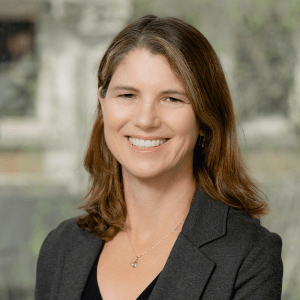The following is an article originally published March 17, 2023, by the California Business Journal.
EcoEngineers Has Established Itself In California To Help Companies Navigate The Carbon Disruption And Energy Transition
By Susan Belknapp, Senior Writer, California Business Journal

From the Race to Zero by the United Nations Framework Convention on Climate Change (UNFCCC), the Net Zero Government Initiative, and the California Climate Commitment, the challenge is on at the global, federal, and state levels for companies and organizations to achieve carbon neutrality. The UN and the U.S. have deadlines of 2050, but California’s goals are more aggressive, with a deadline of 2045.
There is no denying that it must be done, but how do organizations achieve it? How do you begin to put policies and processes in place to meet these goals and even more importantly, how do you completely redesign, rebuild or retrofit equipment, buildings, and entire factories or fleets, to run with greater environmental efficiency?
Enter EcoEngineers, a consulting and auditing company specializing in energy transition issues, establishing itself in California to help companies navigate the carbon disruption. EcoEngineers started in Des Moines, Iowa, in 2009 and works with clients across the U.S., Brazil, Canada, Europe, Asia, and Australia. The firm is comprised of engineers, scientists, policymakers, auditors, and analysts with expert knowledge in sustainability policies, technology, and the carbon marketplace.
EcoEngineers helps companies achieve their clean-energy and carbon goals in three ways: initial education through EcoUniversity, EcoConsulting, and EcoAuditing. EcoEngineers’ consulting practice is further organized around regulatory engagement, lifecycle analysis (LCA), asset development, and compliance. Its auditing group exclusively audits carbon claims and helps prevent greenwashing. (However, it doesn’t provide auditing services to its consulting clients when there is a conflict.)
“We’ve been around for about 13 years and always considered ourselves a California company,” says Shashi Menon, CEO, EcoEngineers. “We’ve been working for the majority of the renewable fuel producers in California since the inception of the low-carbon fuel standards (LCFS), in 2010. We show people how to take control of the ‘E’ in ESG and manifest their own environmental destinies in a good way.”
ESG is Environmental, Social, and Government initiatives that are being embraced by public and private entities worldwide to implement sustainable practices and social equity and instill the policies that keep them on track for measurable change.
“We’ve always admired California and its leadership in setting goals for decarbonizing the entire economy,” says Menon. “We’ve been on that journey with the state since our founding. The net zero goal for 2045 requires, I think, at least a quadrupling of renewable and zero-carbon energy resources. When we talk about electrifying everything, that will require an entire makeover for the grid including generating electricity from offshore wind farms and clean hydrogen.”
California, with its sheer size, economy, number of large corporations, and aggressive goals could be considered ground zero for net zero. If California can do it – by deciding to do it – as the world’s fourth-largest economy, then all other states, countries, and municipalities can do it too.
To help lead the delivery of its services in the Golden State, EcoEngineers brought on Tanya Peacock as managing director for California to help expand its energy-transition practice. Peacock, who is chairperson of the California Hydrogen Business Council, is considered a hydrogen expert and will also lead the hydrogen sector, companywide.
Expanding hydrogen is central to many of California’s plans to meet emissions goals, as evidenced by its investment of up to $115 million to build 200 hydrogen refueling stations by 2025, which will make it the No. 1 fuel cell electric vehicle market in the U.S.
Peacock attended recent United Nations climate conferences and has worked with U.S., French, and Canadian utilities to help with decarbonization efforts focusing on hydrogen and biomethane, in particular. She’s held board and leadership roles at the American Gas Association, Coalition for Renewable Natural Gas, American Biogas Council, and the California Stationary Fuel Cell Collaborative. She’s considered an expert in California’s cap-and-trade program and clean energy policy.
“We’re building an expanded team around Tanya to help our clients navigate the energy transition,” says Menon. “During our history, we’ve helped the industry adapt to the disruption of carbon policies, regulations, and reporting, and now all have become urgent. Industries, whether they agree or disagree, whether they want to or not, are being forced to respond in some way. We sit at the intersection of policy, regulations, technology, and carbon markets. And those have to come together synergistically for this to be successful and we show people how to do that.”
Menon and Peacock are quick to point out that sustainability and profitability are not mutually exclusive. In fact, it’s been shown that once companies have enacted serious environmental overhaul practices, their efficiency increases at such a rate that it not only recoups the investment but adds to it.
“Many people think adapting to climate or carbon regulations is always a high cost and that’s not true,” says Menon. “Many of our clients are profiting from it. Some have tripled their bottom line. They’re doing the right thing and recouping their investments. Teaching them the best way to achieve this is also our expertise and then our clients learn how to further take advantage of this as they go on.”
To further illustrate the depth and breadth of what they do, Peacock gets more granular about the types of projects EcoEngineers can do. They work with clients from small companies to massive refineries, anywhere in the world.
“We have deep experience with hydrogen but we can also help with solar and wind, batteries, or other types of energy generation or storage resources, in the short-, medium- and long-term,” says Peacock. “We’ve worked with a wide range of companies – from Central Valley food processors to Bay Area start-ups; from transit operators and fleets to solar and hydrogen project developers.
All these entities are seeking guidance on transitioning their operations to 0 emissions or low emissions, and we can help them by providing a full assessment of every step in the process they’ll need to achieve their goals. This starts with stakeholder education, then creating an infrastructure to going live and meeting goals. There needs to be a lot of analysis of current operations and where the decarbonization opportunities lie.”
Menon underscores that Peacock is the right person to help EcoEngineers, its clients, and California meet and exceed their environmental aspirations.
“Throughout her career, Tanya has consistently developed and advanced practical low-carbon fuel policy priorities in the State of California and across the world through advocacy, legislation, and regulation,” said Menon. “Tanya’s experienced leadership and deep knowledge of hydrogen will help bring this safe, clean energy source to maturity.”
If you’re an organization ready to start your carbon conversion journey, the first step is to get educated. EcoEngineers can provide the knowledge to help get you started.




